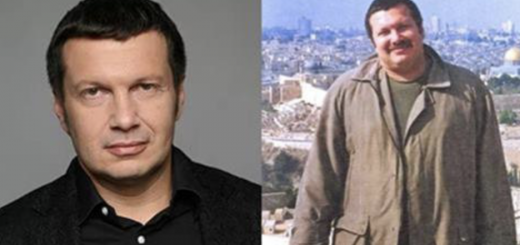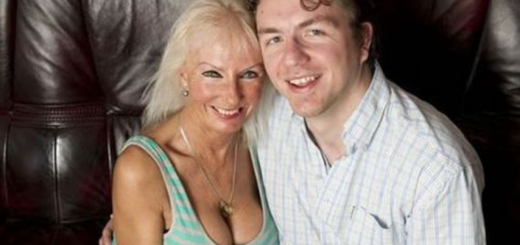The reservation at Le Bernardin had been made three months in advance for Dad’s 60th birthday celebration. Eight family members were seated around a table that could have accommodated twelve, the empty chairs serving as silent testimony to the relationships that had crumbled over the years. I sat at the far end, dressed in what Mom would no doubt criticize as one of those «plain black outfits,» though the understated Armani dress had cost more than most people’s monthly rent.

Not that anyone at this table would know that. To them, I was still just Sophia, the daughter who’d lost her way and refused to settle down like a normal person.
«Sixty years,» Dad said, raising his wine glass with the practiced ease of someone accustomed to being the center of attention. «I never thought I’d see this day, especially not surrounded by such a beautiful family.»
The toast felt hollow, considering the tension that had been building throughout dinner like a storm system gathering strength. My presence had been tolerated rather than welcomed. Every attempt at conversation was met with polite indifference or outright dismissal.
«To Richard Williams,» Mom added, her voice carrying the authority of someone who’d spent thirty-five years as the perfect corporate wife, «the most successful man I know and the father of two wonderful children.»
Two children, not three. The omission was deliberate and cutting. My older brother, Derek, raised his glass enthusiastically, basking in the implied praise. At thirty-eight, he was everything my parents had hoped for in a son: Harvard MBA, senior partner at a prestigious law firm, married to the right kind of woman with the right kind of pedigree.
His wife, Jennifer, smiled adoringly beside him, their two young children seated between them like perfect accessories to their perfect life. My younger sister Melissa, twenty-seven and recently engaged to a hedge fund manager, completed the picture of family success. She was everything I wasn’t: blonde where I was brunette, social where I was private, conventional where I was, well, whatever I was.
«And here’s to family,» Derek added, his voice carrying just enough edge to let me know the comment was directed at me. «The people who stick together through thick and thin, who share the same values and priorities.»
I took a sip of my wine, a 2015 Bordeaux that retailed for four hundred dollars a bottle, though the restaurant had marked it up to eight hundred dollars. I’d noticed the price when Dad ordered it, wincing slightly at the cost. It was a tell that spoke volumes about the family’s financial situation, though none of them realized I’d caught it.
«Speaking of family,» Mom said, her voice taking on the pointed tone that always preceded an attack. «We need to discuss something that’s been weighing on your father and me.»
«Here it comes,» I thought, setting down my wine glass and preparing for whatever fresh humiliation they planned for Dad’s birthday celebration.
«Sophia,» Mom continued, turning her attention to me with the kind of cold focus usually reserved for particularly stubborn stains. «We’ve been patient with your phase for far too long. This whole ‘independent woman’ act, the refusal to get married, the mysterious job you won’t talk about, the way you’ve isolated yourself from the family.»
«I’m sitting right here physically.»
«Yes, but emotionally, spiritually, you’ve been absent for years.»
I looked around the table at the faces I’d grown up with, searching for any sign of support or understanding. Derek was studying his dessert like it contained the secrets of the universe. Jennifer was checking her phone. Melissa was reapplying lipstick. Even Dad seemed uncomfortable, though he wasn’t intervening.
«I’ve been building a life,» I said quietly.
«What kind of life?» Mom demanded. «You live alone in some apartment downtown. You work at a job you refuse to discuss. You don’t date anyone we’ve met. That’s not a life, Sophia. That’s hiding.»
«Maybe I’m hiding because every time I try to share something with this family, it gets dismissed or criticized.»
«We’ve never criticized you unfairly.»
The denial was so breathtakingly untrue that I almost laughed. «Really? Because last Christmas, when I mentioned my work was going well, Dad asked when I was going to get ‘serious’ about my future. Find a husband.»
«That was practical advice,» Dad interjected, speaking for the first time in several minutes. «A woman needs security, Sophia. Financial stability. A partner to build a life with.»
«I have financial stability.»
«Do you? Because from what we can see, you’re barely getting by.»
The assumption was so far from reality that I felt dizzy. I made more money in a month than Dad made in three years, but they’d constructed this narrative about my struggling finances based on my modest lifestyle and refused to consider any alternatives.
«How would you know what my financial situation is?»
«We have eyes, sweetheart,» Mom said with the patient condescension of someone explaining basic concepts to a slow child. «You drive a ten-year-old car. You live in a studio apartment. You shop at regular stores instead of the places where successful people shop.»
«Maybe I like my car. Maybe I prefer my apartment. Maybe I don’t need designer clothes to feel good about myself.»
«Or maybe you can’t afford better,» Melissa chimed in, speaking for the first time all evening. «There’s no shame in struggling, Sophia, but there is shame in pretending you’re not.»
The cruelty was breathtaking. Here was my own sister, whom I’d helped pay for law school just two years ago, suggesting I was too poor to afford a decent lifestyle.
«I’m not struggling,» I said firmly.
«Then why won’t you tell us what you actually do for work?» Derek asked. «Every time someone asks, you change the subject or give vague answers about ‘consulting.'»
«Because you wouldn’t understand it.»
«Try us,» Mom challenged. «We’re not stupid, despite what you apparently think.»
I considered my options. I could tell them the truth: that I was the founder and CEO of Meridian Global, a technology company worth $4.7 billion; that I employed over 8,000 people across six countries; that I’d been featured on the cover of Fortune magazine as one of the youngest female billionaires in history.
But I’d learned over the years that sharing my successes with this family only led to new forms of criticism. When I tried to tell them about my first million-dollar deal, Dad had lectured me about the dangers of risky investments. When I’d mentioned my company’s rapid growth, Mom had worried about the stress I was putting myself under. When I’d been honored by the Chamber of Commerce, they’d suggested I was «showing off.»
«I develop software solutions for large corporations,» I said, which was technically true, if dramatically understated.
«Software,» Mom repeated with the same tone she might use to say «garbage collection.» «And that pays enough to support yourself?»
«It pays enough.»
«But not enough to buy a proper car or a decent apartment.»
«My car and apartment are fine.»
«They’re not fine, Sophia,» Dad said, his voice taking on the authoritative tone he’d perfected during thirty years of corporate management. «They’re the choices of someone who’s given up, someone who’s settled for mediocrity, or someone who has different priorities than you do.»
«What priorities?» Mom demanded. «Because from where we’re sitting, it looks like your only priority is avoiding responsibility.»
«Responsibility for what?»
«For growing up. For becoming the woman we raised you to be. For finding a husband and starting a family like normal people do.»























































